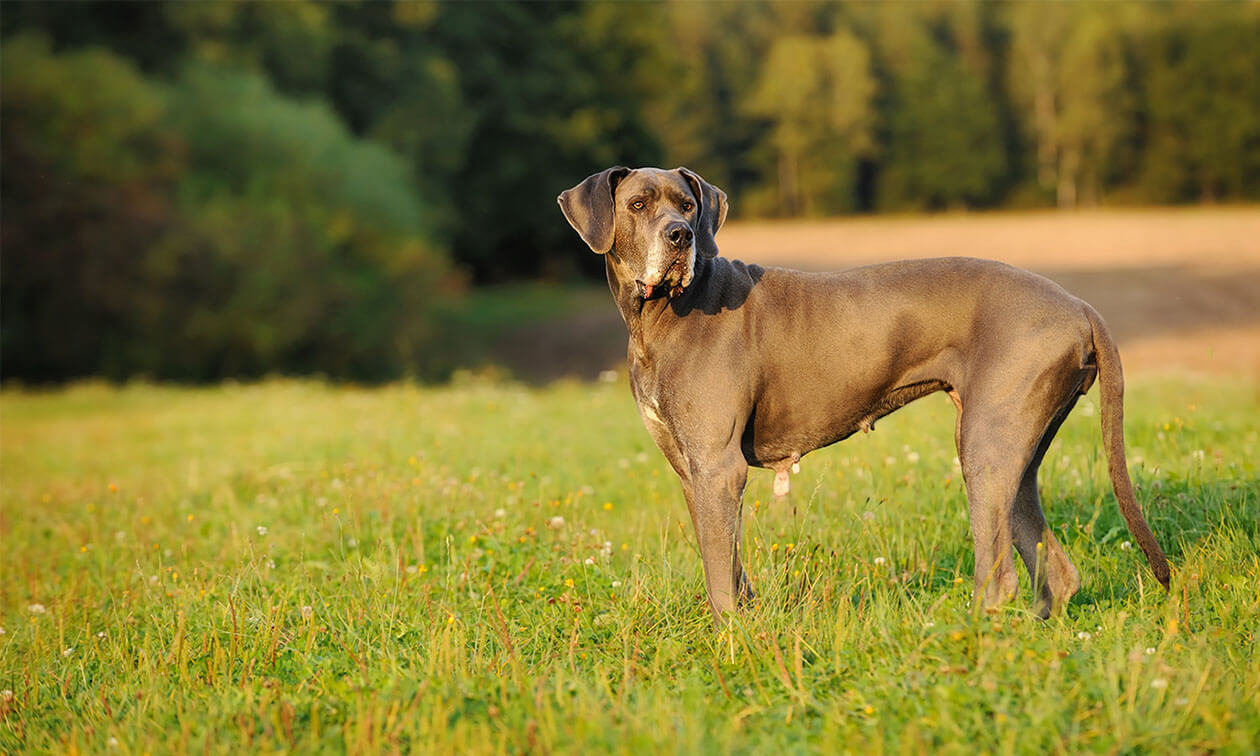If you live in a hot weather region — whether full-time or part-time — it's important to choose a dog breed that can handle the heat or at least take special precautions if you have a breed that may have issues with the heat. When it comes to our pets, we want them to be comfortable in any climate and warm weather can be difficult for many breeds of dogs. If you're planning on moving to a warmer climate, you'll want to ensure your dog is prepared for the change as well.
Consider Dogs Historically Bred in Hot Climates
One of the best ways to narrow down potential breeds is to investigate what breeds were developed in similar climates. Do keep in mind that any breed can quickly run into health problems if they get too hot. Beyond the artificial selection controlled by people over the past centuries, the environment played a large role in the natural selection of dogs. Here are some dog breeds that come from areas known for hot weather.
Basenji
Originating from Central Africa, Basenjis have a rich history of living in hot climates. They are often called "barkless dogs" and are well-known for their cat-like grooming habits. Their short, fine coat provides natural insulation and allows for efficient heat dissipation, making them well-suited for warmer weather. Basenjis are highly adaptable and tend to be more tolerant of heat compared to other breeds. However, they still need access to shade and fresh water during hot days.
Chihuahua
Despite their tiny size, Chihuahuas are mighty when it comes to dealing with heat. These dogs have Mexican roots and are descendants of ancient Techichi dogs. Chihuahuas have a short or long coat, both providing insulation against the heat. Their small size allows them to dissipate body heat more efficiently. Nevertheless, it's essential to take precautions with Chihuahuas during hot weather. Their small bodies are prone to dehydration, so always ensure they have access to water and shade.
Greyhound
Known for their incredible speed, Greyhounds are also well-suited to heat due to their slim physique and short coat. With origins dating back to ancient Egypt and the Middle East, Greyhounds have a history of living in hot climates. Their thin, short coat helps regulate body temperature, and their lean build promotes better heat dissipation. However, be cautious during extreme temperatures, as even Greyhounds can suffer from heatstroke.
Pharaoh Hound
Originally from Malta, the Pharaoh Hound possesses incredible heat tolerance. It is often called the "blushing dog" due to its unique ability to display a rosy hue when excited or warmed. Their short coat is fine and thin, allowing for better heat exchange. The Pharaoh Hound's ears are also large and thin, aiding in heat regulation. Despite their natural adaptation to heat, providing them with shade and water is crucial, especially during the hottest parts of the day.
Havanese
The Havanese breed was developed in a tropical climate in Cuba (hence the "Havana"). They have a unique coat of long, silky hair that acts as a natural insulator. This helps to protect them from the sun's rays and provides a barrier against excessive heat. Along with their luxurious coat, Havanese dogs have a smaller size which helps them disperse body heat more effectively, enabling them to better handle hot weather.
Dogs with Fine or Single-Layer Coats Do Better in Hot Weather
A dog's coat type and coat condition affect how well they do in warmer weather. Dogs with thin coats or shorter hair tend to have better heat tolerance as their coat allows for better airflow and heat dissipation. This enables them to stay cooler than dogs with thicker or longer coats.
Dog Breeds That Struggle in Hot Weather
It's important to note that certain breeds, like those with flat faces (brachycephalic breeds), may have more difficulty regulating body temperature in hot climates. Breeds that were made for cool climates may also have less heat tolerance:
- English Bulldogs
- Pugs
- Boxers
- Shih Tzus
- Boston Terriers
- French Bulldogs
- Huskies
Bernese Mountain Dogs
Due to their shortened nasal passages, these breeds don't cool down as efficiently through panting, making them more susceptible to heat-related issues. If you do have one of these breeds, it's crucial to be extra vigilant and take necessary precautions to keep them cool and comfortable, especially if they're overweight.
Keep in mind that large breeds with undercoats are best suited for cold temperatures.
Hot Weather Tips for All Dogs
Even if you have a hot-weather dog breed, take precautions to keep them safe in the heat.
- Water is key. Ensure your dog has access to fresh, clean water always to avoid dehydration. Place multiple water bowls around your home and yard.
- Shade is essential. Create shaded areas in your yard and provide a well-ventilated space indoors. Ideally, have air conditioning to ensure a comfortable indoor temperature.
- Avoid excessive trimming or shaving of a dog's coat. This can make them more vulnerable to heat-related issues by removing their natural protection, like sunburn. It's always recommended to consult with a veterinarian or professional groomer before trimming a double-layer coat to keep a dog cool.
- Time your walks. Avoid taking your dog for walks during the hottest parts of the day. Opt for early mornings or evenings when temperatures are cooler.
- Paw protection. Protect your dog's paws from hot pavement or sand by walking them on grass or investing in dog booties.
- Never leave a dog in a hot car. Even with the windows cracked, the temperature inside a car can rise dangerously fast, leading to heatstroke or death.
If you have been living in a cooler climate and are traveling to a warmer client, be sure to give your dog time to adapt.
Consult with your veterinarian or a certified dog trainer to help determine the best breed match for your lifestyle and environment. By being proactive and taking necessary precautions, you can ensure a safe and enjoyable time in warm weather with your beloved canine companion.
ZPC-02716



